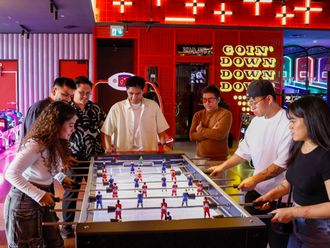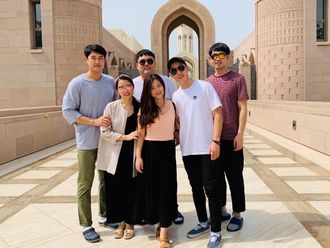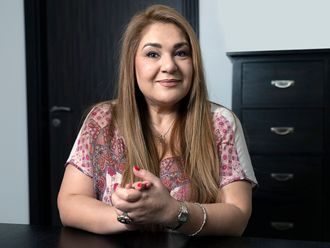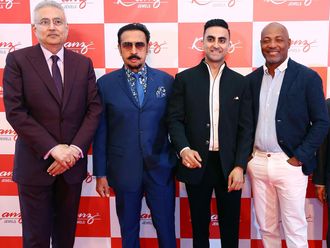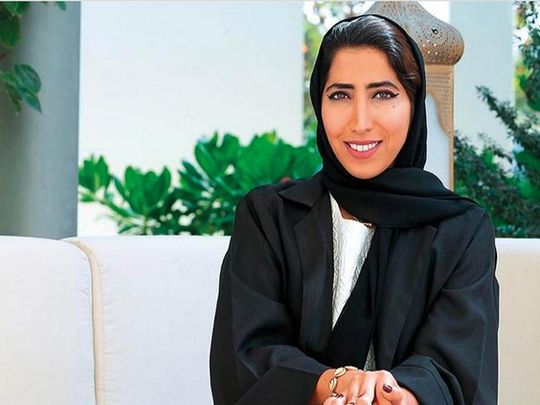
Just a few basic hand-drawn symbols grace the cover page of Emirati author Roudha Al Marri’s bestselling book UAE 101: Stories and Cultural Learnings. This minimalistic approach was deliberately chosen as she believes that culture should not be something heavy or overwhelming; but rather it should be friendly, connective and something you fall in love with.
A collection of 101 anecdotes and tips, the book aims to give a better understanding and appreciation for the UAE culture and local customs. What makes it distinct from other books of its genre is that it provides a dual perspective of Emirati culture; one from Roudha and the other from Italian expat Ilaria Caielli, who has co-authored the book.
Born in Dubai, Roudha along with 10 siblings grew up in Jumeirah (around what is now the City Walk area). Her father Ghanim Al Marri was a pearl diver who went on to become the captain of a ship. “He would always tell us that the country was witnessing a great change and we should adapt along with it. Living in the backdrop of the Burj Khalifa, we grew up watching the amazing transformation of the country,” recalls Roudha.
Presently residing in Abu Dhabi, 36-year-old Roudha always wanted to share more about the Emirati culture with the thousands of expats who also call the UAE their home, and also with tourists. As the only Emirati in her residential community (in Saadiyat), she got a lot of queries on Emirati culture and lifestyle, even from expats who had been living in the country for a long time.
“Ilaria, who is a published author back in Italy, is also my neighbour. They say opportunity knocks only once, and back in 2016 she literally came knocking on my door with this idea of a book,” says Roudha.
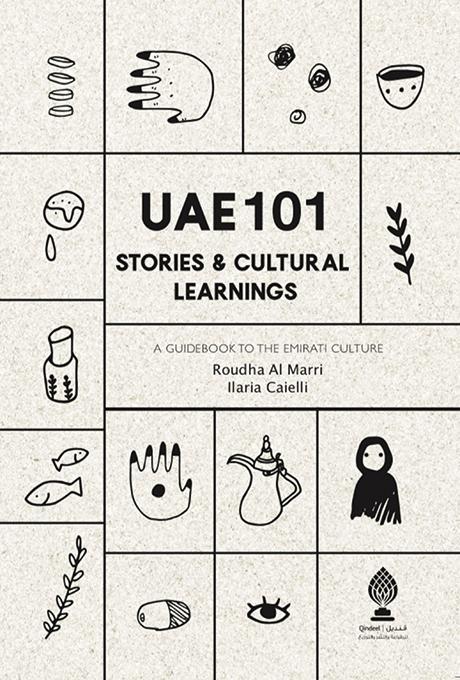
“It was for the first time that a local and an expat sat over a cup of tea and discussed the significance, nuances and uniqueness of Emirati culture. We tried to make it simple, appealing and filled with personal experiences. Ilaria had many questions that naturally pop up in an expat’s mind, and I would clarify it with a story or snippet from my own life,” says Roudha. This personal approach contributed immensely to the popularity of the book, which has sold more than 10,000 copies since it was published in 2018, and is now in its fourth edition.
Stories and culture
The book focuses on issues including history, traditions, lifestyle, folklore, food, drink and religion. More than just a handbook or a guide, it explores the origins of certain customs and traditions. For instance, did you know that most Emiratis create their own perfume by mixing various scents and potions together? Almost every house has a chest of basic perfumes, which are mixed according to the preferences of each person. “Every morning I would wake up to the smell of my mother opening the chest and making her own concoction. Each perfume is distinct and we could always identify one another by the scents. For us this is our identity but for most Europeans it would probably give them a headache,” laughs Roudha.
On her part Ilaria did the research for each story. In the case of perfumes, she found out measurements, availability, etc., so that readers would know where to get them.
The book became the fastest-selling book on Emirati culture and soon the author duo was invited to many events and book signings. It is also on sale in many parts of the world. “My trainer told me she saw the book in Sydney airport,” says Roudha.
Inspired by the success, Roudha has already ventured on to her second book, called 101 Misconceptions about the UAE, Explained!
As the title suggests, the book hopes to dispel some common misconceptions about UAE culture.
“A burqa (face covering for women) is one of the examples cited,” explains Roudha. “Most people think women wear it to cover their face, but it is actually a symbol of adornment, like how you wear a necklace. It also signifies that a woman is married,” she says.
Master of a few trades
Apart from being a bestselling author and a loving mother to her eight year-old son Hamad, Roudha is a certified yoga teacher. Since the period of home isolation hindered her yoga classes, she decided to provide free online classes, with an appeal that participants donate whatever they could to those who were suffering from the aftermath of Covid-19; be it those who had lost their jobs or had fallen ill.
“The result was tremendous; people opened their hearts and gave away a lot of stuff. The reason to do yoga is to help people alleviate their stress and get relief. No point in teaching yoga when there are people who are suffering all around us. These troubled times have helped to bring a sense of unity among us while self-isolating,” she says.
With the intention of promoting more local talent in writing, in November Roudha established her own publishing firm called House 101. The second book will be published under this banner by the end of this year.
“There are a lot of Emiratis who write well in Arabic. Those who write in English get it published elsewhere. I would like to give a platform for our writers to get their work in any language printed here,” she says.
She is also practising to be a certified breathing coach.
So how much has culture changed from her childhood to that of her son’s?
“Not much,” says Roudha. “Our culture is just like the golden sand dunes of the country. They change shape according to the seasons but they always retain their identity. Similarly, I don’t think the basic Emirati has changed. Our ambitions have reached the skies but our values still remain the same.”
Originally published in July 2020




